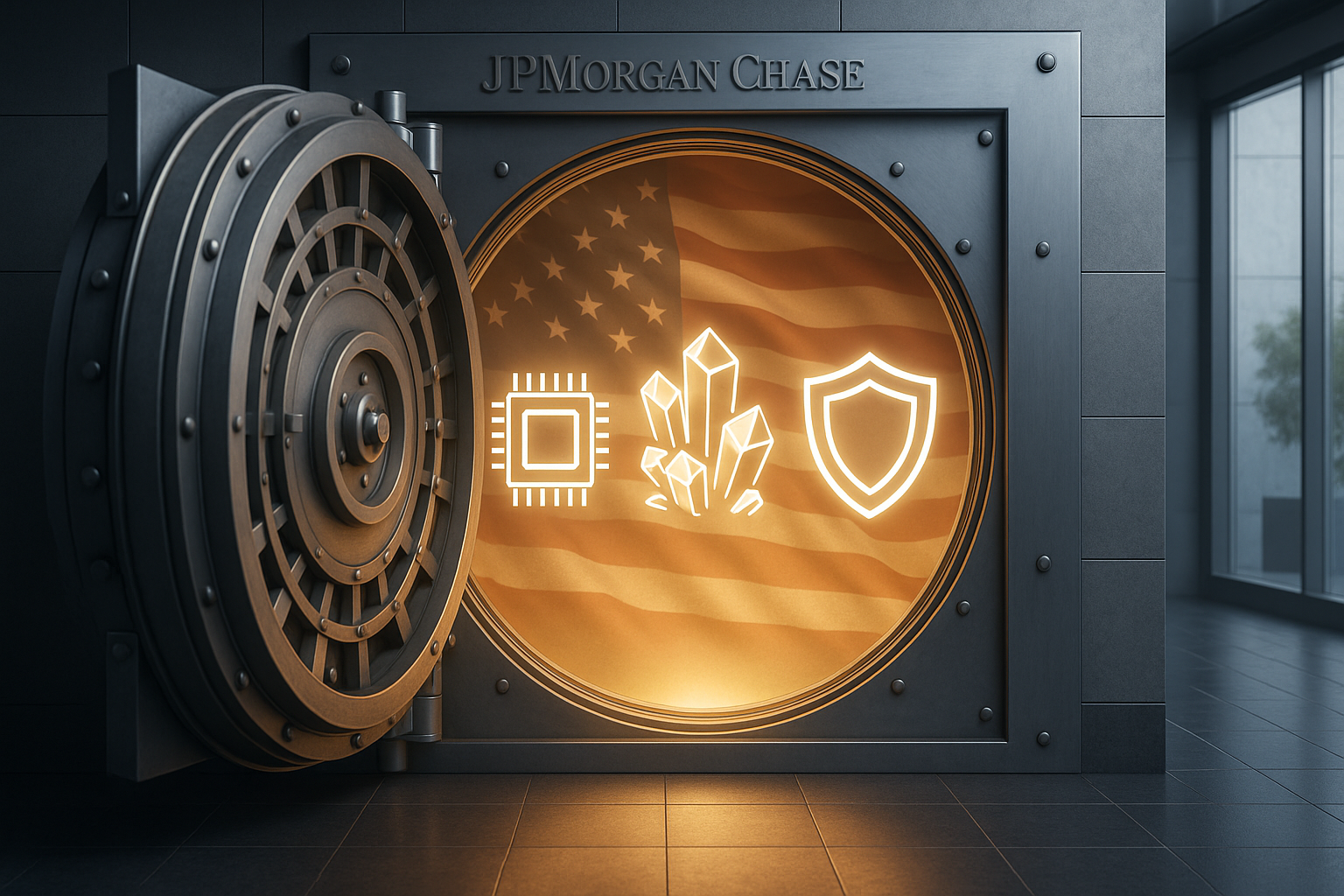Jamie Dimon has never been afraid to make a splash. Now he's cannonballing into the deep end of America's national security pool.
JPMorgan Chase just unveiled plans to pump up to $10 billion into direct equity and venture capital stakes across industries deemed critical to American security and economic resilience. We're talking AI, critical minerals, defense – the whole strategic enchilada.
But that's not even the headline number. The banking giant is committing a staggering $1.5 trillion in future financing toward these "essential" industries. That's trillion with a "T" – the kind of figure that makes even seasoned financial reporters do a double-take.
Look, I've covered Wall Street's periodic flirtations with patriotism for years. Financial institutions discover national interest as an investment thesis roughly as often as politicians discover the middle class before elections. But this time feels... different.
The scale alone is noteworthy. Ten billion dollars isn't JPMorgan just testing the waters – it's buying the whole damn swimming pool.
Why now? That's the obvious question. Having tracked JPMorgan's strategic moves since Dimon took over, I'd say the timing isn't exactly mysterious. With China tensions simmering, semiconductor shortages lingering, and an AI arms race accelerating, the intersection of national security and capital allocation has become the hottest corner of the policy world.
Is this admirable patriotism or calculated opportunism?
(Spoiler alert: probably both.)
There are several ways to interpret what's happening here.
First, this could simply be smart business. These sectors represent significant growth opportunities, and wrapping them in the flag provides helpful political cover and potential regulatory advantages. Nothing wrong with that.
Second – and this is where things get interesting – we might be witnessing a fundamental shift in how America's largest financial institutions see their role. Moving from pure capital allocation toward something that looks suspiciously like industrial policy by proxy.
Third, JPMorgan may just be following Washington's lead. There's now bipartisan consensus around onshoring critical industries, creating a landscape flush with subsidies and incentives that would make any bank salivate.
The pendulum swing is what fascinates me most. For decades, conventional wisdom held that globally integrated markets would naturally produce optimal outcomes. The invisible hand, we were told, doesn't need a passport.
Then came the pandemic's supply chain nightmare. And Russia's invasion of Ukraine. And escalating tensions with China. Suddenly, national borders matter again.
JPMorgan isn't just responding to this shift – it's positioning itself as the architect of a new American industrial future.
Will it work? That depends on whether current geopolitical trends continue. If U.S.-China competition unexpectedly cools or technological breakthroughs render certain mineral dependencies obsolete, JPMorgan could find itself heavily invested in yesterday's strategic priorities.
But Jamie Dimon hasn't built his reputation by missing the big picture.
"America has become hampered domestically and overly reliant on foreign supply chains," he noted in framing this initiative. That assessment reflects a growing consensus that globalization went too far without sufficient guardrails for strategic industries.
I spoke with three former Treasury officials yesterday who all expressed the same sentiment: this is the private sector stepping in where government has struggled to coordinate a cohesive industrial strategy.
The most cynical reading? JPMorgan is just following subsidies and political favor. The most charitable view? The bank is leveraging its capital position to strengthen national resilience.
The truth – as is usually the case in the messy world of finance and policy – probably lies somewhere in the middle, in that profitable gray area where public interest and private gain conveniently overlap.
Whatever the motivation, $10 billion creates its own reality. For companies in these critical sectors, JPMorgan's announcement isn't just about capital availability but validation of their strategic importance. Money talks, and $10 billion? That's practically a shouting match.
Ten years ago, a major bank explicitly orienting its investment strategy around national security would have raised eyebrows and probably triggered worried editorials about the militarization of finance. Today, it hardly registers as surprising.
That might be the most telling aspect of all.
The invisible hand, it seems, has learned to salute.
